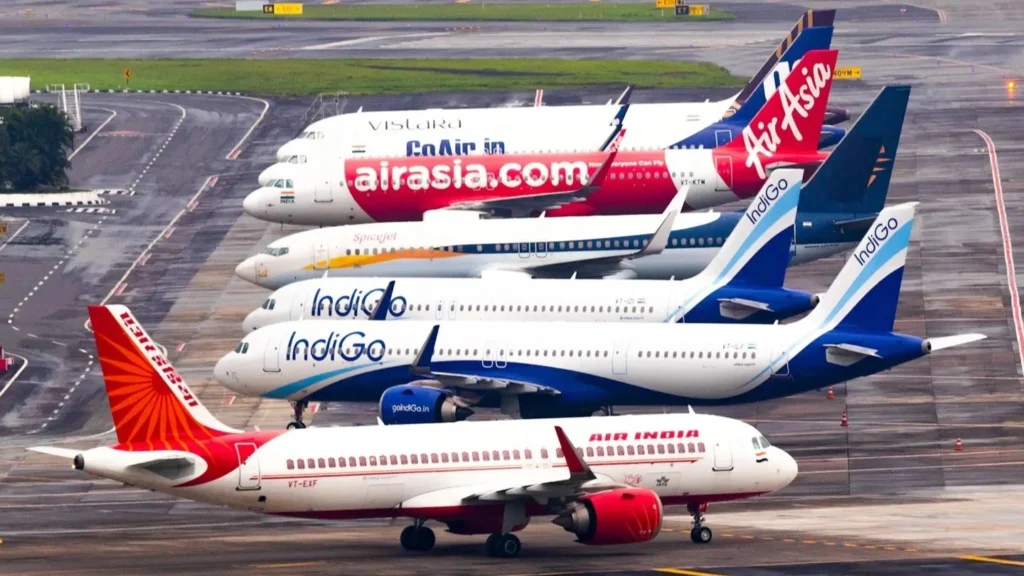NEW DELHI- IndiGo (6E) flight from Chandigarh (IXC) to Mumbai (BOM) received a bomb threat, prompting a high-alert response at Chhatrapati Shivaji Maharaj International Airport (BOM).
The incident, occurring during Operation Sindoor strikes, highlights heightened security amid India-Pakistan tensions.

IndiGo Flight Bomb Threat
Late on May 6, 2025, a phone call to the hotline of Mumbai Airport (BOM) claimed a bomb was aboard IndiGo (6E) flight 6E6382 from Chandigarh (IXC) to Mumbai (BOM).
The flight, carrying 167 passengers, landed safely at 2:32 AM on May 7 and was immediately directed to an isolation bay. A bomb disposal squad, CISF, and Mumbai Police conducted a thorough search of the aircraft.
No suspicious items were found, confirming the threat as a likely hoax. Mumbai Police launched an investigation to trace the caller, whose identity remains unknown.
The incident follows a pattern of hoax bomb threats targeting Indian airlines, with 1,143 reported between August 2022 and November 2024.
The Chandigarh-Mumbai (IXC-BOM) incident delayed passengers as the aircraft underwent extensive checks. IndiGo (6E) assisted, including refreshments, and apologised for the disruption.
The airline’s proactive communication reflects its commitment to passenger safety, though the incident underscores the broader operational challenges posed by geopolitical tensions.

Operation Sindoor
The bomb threat coincided with India’s Operation Sindoor, a retaliatory strike on May 6, 2025, targeting 9 terrorist camps in Pakistan and Pakistan-occupied Kashmir (PoK). The Indian Army confirmed the strikes hit terrorist infrastructure, avoiding Pakistani military targets to remain non-escalatory.
Pakistan’s subsequent airspace closure to Indian airlines, effective until May 25, 2025, forced IndiGo (6E) and other carriers to reroute flights, increasing costs and delays.
The bomb threat, occurring hours after the strikes, raised concerns of retaliatory actions, prompting authorities to treat it as a national security issue. Indian airspace remains under strict surveillance to ensure safety.

Enhanced Security Measures
The DGCA is closely monitoring the situation, emphasising passenger safety as the top priority. Following the bomb threat, Mumbai (BOM) authorities strengthened security protocols, coordinating with IndiGo (6E) and national agencies.
The government has doubled the number of sky marshals on flights to counter rising threats, a response to recent hoax incidents targeting airlines.
The Civil Aviation Ministry is also developing stricter regulations, including placing perpetrators of hoax threats on no-fly lists.

Broader Implications
The bomb threat and Operation Sindoor highlight the vulnerability of Indian aviation to geopolitical events. Airspace closures have extended flight durations by up to 2.5 hours, raising fuel costs and airfares by 8–12%. Indian airlines face weekly losses of ₹80–100 crore, while foreign carriers with overflight rights gain a competitive edge.
As investigations continue, the focus remains on identifying the threat’s source and preventing similar incidents. The aviation sector must balance heightened security with efficient operations to maintain passenger trust and safety.
Stay tuned with us. Further, follow us on social media for the latest updates.
Join us on Telegram Group for the Latest Aviation Updates. Subsequently, follow us on Google News

